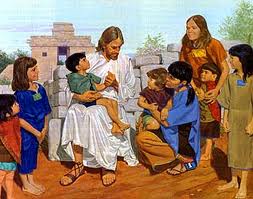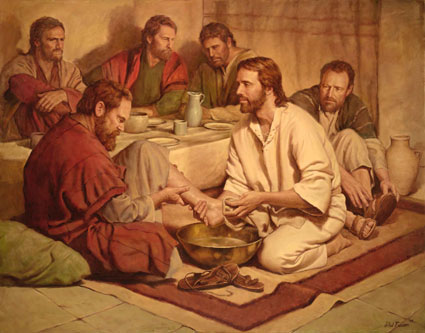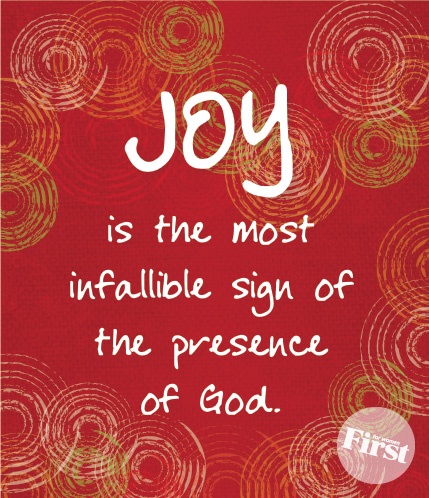
– 09-07-2023 –
Fourteenth Sunday in Ordinary Time
Gospel text: Matthew 11:25-30
 vs.25 At that time, Jesus exclaimed, “I bless you, Father, Lord of heaven and of earth, for hiding these things from the learned and the clever and revealing them to mere children.
vs.25 At that time, Jesus exclaimed, “I bless you, Father, Lord of heaven and of earth, for hiding these things from the learned and the clever and revealing them to mere children.
vs.26 Yes, Father, for that is what it pleased you to do.
vs.27 Everything has been entrusted to me by the Father; and no one knows the Son except the Father, just as no one knows the Father except the Son and those to whom the Son chooses to reveal him.
vs.28 Come to me, all you who labour and are overburdened, and I will give you rest.
vs.29 Shoulder my yoke and learn from me, for I am gentle and humble in heart, and you will find rest for your souls.
vs.30 Yes, my yoke is easy and my burden light.”
*******************************************************************
We have four sets of homily notes to choose from.
Please click on the one required or scroll down the page.
We have four sets of homily notes to choose from. Please scroll down the page for the desired one.
Michel DeVerteuil : A Holy Ghost Priest, teacher of Lectio Divina
Thomas O’Loughlin: Professor of Historical Theology, University of Nottingham.
John Littleton: Director of the Priory Institute Distant Learning, Tallaght 24
Donal Neary SJ: Editor of The Sacred Heart Messenger
*******************************************************
Michel de Verteuil
Lectio Divina with the Sunday Gospels – Year A
www.columba.ie
General comments
 Today’s passage is best understood as a wonderful summary of the “Little Way” of St Thérèse of Lisieux. For those who are acquainted with the spiritual teaching of the Saint, it is an opportunity to celebrate her and all she has meant to the Church and to the world of our time. Like all bible passages, this one teaches by way of story. It records a moment of intense emotion in the life of Jesus, when he “exclaims” i.e. utters a heartfelt prayer of thanksgiving.
Today’s passage is best understood as a wonderful summary of the “Little Way” of St Thérèse of Lisieux. For those who are acquainted with the spiritual teaching of the Saint, it is an opportunity to celebrate her and all she has meant to the Church and to the world of our time. Like all bible passages, this one teaches by way of story. It records a moment of intense emotion in the life of Jesus, when he “exclaims” i.e. utters a heartfelt prayer of thanksgiving.
The experience was particular to Jesus but as always with lectio divina we are invited to enter into it, recognizing with gratitude that we and great people who have touched our lives have lived similar moments. They have been “wisdom moments”, i.e. taught us some important lessons about human living.
Jesus reflects on three aspects of his life:
a) verses 25 and 26: the learned and the clever did not understand him but “mere children” did;
b) verse 27: his relationship with his heavenly father;
c) verses 28 to 30: his ministry to those who are overburdened by the religion of his time.
We read the passage as one continuous flow, interpreting each section in the light of the other two.
Verses 25 and 26. The Jewish community which Jesus ministered to was divided into two categories: (a) those who knew and practiced the law and (b) those who did neither. Jesus experiences that those barriers are of no consequence – the experts in the law didn’t understand him whereas the others did – and this moves him very deeply. Note the adjective “mere” – they were considered of no consequence.
Jesus’ overall response is positive; he is not concerned with those who don’t understand, his entire focus is on the wisdom of the little ones. He is like Mary in the Magnificat celebrating the “lowly lifted up” rather than rejoicing at “the mighty cast down”.
We too have had moments when we became aware of the greatness of those we had previously looked down upon:
– men and women who never darken the doors of a church turned out to be “holy” people;
– those with little formal education shared insights which we had never thought of;
– the children of dysfunctional families became wonderful parents.
We remember our feelings then – how wrong we had been! what good news that we had been wrong! The “mere children” need not be people. We can interpret them of aspects of ourselves that we tend to disown – our weak points, failures, jealousies, feelings of insecurity. One day we realize that in order to see reality more clearly we must see the world with the eyes of a child and renounce our need/desire to find security in power or status – being “learned and clever“.
We celebrate moments when perhaps for the first time we appreciated:
– the beauty of nature
– the greatness of others
– the potential in a community.
The passage is a lived experience of Jesus’ teaching that unless we are converted and become like little children we will never enter the kingdom of heaven.
In verse 27 Jesus remembers that he himself was a “mere child” in the presence of his heavenly Father. The passage is recognized to be difficult. Many scholars read it as a testimony to Jesus’ unique relationship with God the Father – in parallel with similar testimonies in St John’s Gospel. It therefore becomes a “proof text” that he was truly God. But the “law” of lectio divina that I mentioned above must apply to this verse in particular – the only way to understand a bible passage is from personal experience.
 Lectio reminds us that by the incarnation Jesus does not merely reveal God, he reveals us to ourselves. He invites us to share his unique experience, even though on a lower level.
Lectio reminds us that by the incarnation Jesus does not merely reveal God, he reveals us to ourselves. He invites us to share his unique experience, even though on a lower level.
Furthermore we approach the passage “from below” remembering our deep human relationships, e.g. with a spouse, a colleague, a “soul friend”; the relationship then becomes a “parable” of our relationship with God.
The passage looks at two aspects of Jesus’ relationship with the Father,
– trust, in verse 27a,
– knowing” in verse 27b.
Verse 27a tells us that for Jesus (and for us) “everything” in the relationship is a gift, temporarily “entrusted to us” by a loving Father. This is how “mere children” relate with adults.
“Know” in 27b has the biblical meaning of “have a very intimate relationship” (in the bible “know” often means “have sexual intercourse with”).
“No one knows except … ” is also a biblical way of speaking. It indicates the intensity of the relationship, “I know you in way that no one in the world does”. It is like the passages which speak of Israel as God’s “only” or “first- begotten” son which mean, “my love for you is very special”. Parents will understand this; they know about loving each of their children as an “only child”.
Verse 27c adds that Jesus has shared with others his intimacy with the Father. The verse is saying two things:
– his ministry (like ours) consists in initiating people into intimacy with God;
– he “chooses”, in the sense that he puts the stamp of his freedom on the relationship he establishes: “life (the Lord) sent you on my path, and I have turned what was a chance meeting into a personal choice.”
 Verses 28 to 30 draw the conclusion from the first two sections: because Jesus has experienced life as a gift, his followers are truly free. In the time of Jesus (as in our time) religion had become a matter of keeping commandments; people experienced it as “labour”; they felt “overburdened” by it. Jesus changed that; he made religion an experience of freedom. He challenged his followers to reach beyond their narrow concerns, but they experienced this “yoke” as “easy” and this “burden” as “light”. We celebrate people who did that for us.
Verses 28 to 30 draw the conclusion from the first two sections: because Jesus has experienced life as a gift, his followers are truly free. In the time of Jesus (as in our time) religion had become a matter of keeping commandments; people experienced it as “labour”; they felt “overburdened” by it. Jesus changed that; he made religion an experience of freedom. He challenged his followers to reach beyond their narrow concerns, but they experienced this “yoke” as “easy” and this “burden” as “light”. We celebrate people who did that for us.
We interpret “gentle and humble of heart” in the light of the two previous sections. It means being able to accept weakness (being mere children) in the presence of God. Our interpretation will be based on personal experience – we think of people who made life’s challenges easy to bear and recognize how they were gentle and humble of heart.
We can interpret the passage as a celebration of the teaching method of the great Brazilian educator, Paulo Freire, as taught in his famous work Pedagogy of the Oppressed. We can identify the three stages of the passage, starting with the third:
– teaching must not be a “burdensome” transferring of facts (the “banking method” of education) but an initiation to freedom;
– for true teachers knowledge is a sacred trust they grow into, side by side with their students;
– the sign of a good teaching method is that the lowly understand things hidden from the learned and the clever (including the teacher).
Prayer Reflection
Heavenly Father, Lord of heaven and earth, we thank you that you have hidden things from the learned and the clever and revealed them to mere children; yes, Father, that is what it has pleased you to do.
Lord, we always tend to form groups where we feel superior to others and listen only to one another,
– as a Church and as groups within the Church;
– within ethnic groups and social classes;
– within our families and communities.
We thank you for those precious moments when you break down the barriers we have set up,
surprising us by hiding things from us and revealing them to those we considered mere children:
 – someone we thought a sinner taught us true loyalty or love;
– someone we thought a sinner taught us true loyalty or love;
– a child we looked on as inferior said a word that brought peace to our family;
– young people accomplished something we adults had not been able to do;
– a group we had written off as unemployable organized themselves into a co-op.
At that moment you were calling us to poverty of spirit
whereby we recognize you as Lord of heaven and earth.
Lord, we pray that our Church may be a presence of Jesus in our country:
– always on the lookout for those who are looked down upon as mere children;
– grateful when you reveal things to them that have been hidden from the learned and the clever;
– and proclaiming your love to the world.
Lord, we thank you for moments of intimacy and sharing,
when friends opened themselves to us in trust, letting us know them as no one knew them, and we felt known as we had never been known,
and there was no worry about our trust being betrayed.
These were truly sacred moments when we experienced your love and your trust.
We pray today for families,
that they may be living experiences of your Holy Trinity,
with trust between parents and children, parents letting themselves be known by their children and children letting themselves be known by their parents, and children free to invite whoever they like into that place of trust.
Lord, there are people in our society who are overburdened:
– society makes them feel responsible for the country;
– their sins appear more shameful than the sins of more respectable people;
– they are caught in a trap of poverty and lack the energy to get out.
We pray that as a Church we may not add to their burdens.
Help us on the contrary to come to them like Jesus,
– with respect and trust and in a spirit of dialogue;
– with humility and gentleness of heart,
so that they may feel themselves understood and so find rest for their souls.
Lord, we pray today for those who feel called to undertake some burden:
– to accept death or illness;
– to forgive an enemy;
– to let a loved one go;
– to involve themselves in a struggle for justice.
Help them to trust you,
*that you know how they labour and are overburdened,
*that you are gentle and humble of heart, and
*they will find the yoke easy and the burden light.
Heavenly Father, we thank you for moments of deep prayer
when we experience that everything is your gift entrusted to us.
Others misunderstand us, but we feel you understand,
and we say no one knows us except you;
we feel so close to you, we can say no one knows you except us;
so close to those we minister to,
we can say those whom we have chosen to reveal you to also know you.
Lord, religion often becomes a matter of keeping commandments, a heavy burden to bear. We thank you for sending us teachers like Jesus,
so gentle and humble in heart that we find rest for our souls;
they lay a yoke on us but it is easy,
they ask us to bear a burden but it is light.
 Lord, we thank you for the gift of St Thérèse of Lisieux. Truly you revealed things to this mere child which you hid from the learned and the clever among her contemporaries,
Lord, we thank you for the gift of St Thérèse of Lisieux. Truly you revealed things to this mere child which you hid from the learned and the clever among her contemporaries,
yes Father that is what it pleased you to do;
– she knew that whatever she had was entrusted to her by you,
– she felt herself known by you in a way that no one else knew her,
– she knew you as no one else knew you, and those to whom she taught her Little Way,
– she called to her all who felt religion as a labour and a burden and she gave them rest;
– we have learnt humility and gentleness of heart from her and we found rest for our souls;
– we found her yoke easy and her burden light.
*********************************************************
Thomas O’Loughlin
Liturgical Resources for the Year of Matthew
www.columba.ie
Introduction to the Celebration
Every Sunday we gather here because we have heard the Lord’s invitation: ‘Come to me, all you who labour and are overburdened, and I will give you rest.’ We rejoice that God in his generosity has given us this day of rest, this day of rejoicing, this day when we can just be happy and reflect on the wonder of the creation.
Homily Notes
1. The challenge with a text such as today’s gospel is to find something particular that can give expression to the aspect of the kergyma which it represents. I am picking up the notion of the rest that God gives us, and particularising it in terms of the notion of Sunday as the divine gift of a day of rest.
2. This is, of course, an ancient theme. And, deviant notions of Sabbatarianism apart, there has been a standard way to present both the Sabbath (in Jewish sources) and Sunday (among Christians) down the ages. These presentations have a common theme: ‘This is the day.’ Whether it is the day of creating or resting from creating, or the day of resurrection or some other day. Then this actual day, Sunday now, is a means of participating in that original’ day’. This notion that time forms mystical unity with the fundamental moments in the history of salvation is deeply embedded in both Jewish  and Christian notions of ritual and celebration. However, possibly Christmas and Easter apart, they seem not to excite people today in the way they did until quite recently. Whatever has caused this change is one matter, the fact is that in a ‘leisure society’ the notion of a Day of Rest, or a Day belonging to the Lord, just does not move people – even if they are Christians. This can be seen in that many people are willing to opt for alternative ‘worship services’ that would take place on weekday evenings because they do not want to have ‘to go on Sunday’ as it ‘messes up their weekend’. The time of leisure, the weekend, is so sacrosanct that it cannot even be interrupted for prayer. Older books spoke of the dichotomy of people who gave ‘Sunday to God; the rest to mammon’; now it is more complex. Monday to Friday is for work and duties; weekends are pure leisure time; God does not belong to my leisure time, so he can be squeezed in during the week.
and Christian notions of ritual and celebration. However, possibly Christmas and Easter apart, they seem not to excite people today in the way they did until quite recently. Whatever has caused this change is one matter, the fact is that in a ‘leisure society’ the notion of a Day of Rest, or a Day belonging to the Lord, just does not move people – even if they are Christians. This can be seen in that many people are willing to opt for alternative ‘worship services’ that would take place on weekday evenings because they do not want to have ‘to go on Sunday’ as it ‘messes up their weekend’. The time of leisure, the weekend, is so sacrosanct that it cannot even be interrupted for prayer. Older books spoke of the dichotomy of people who gave ‘Sunday to God; the rest to mammon’; now it is more complex. Monday to Friday is for work and duties; weekends are pure leisure time; God does not belong to my leisure time, so he can be squeezed in during the week.
3. So how do you speak about Sunday and’ a day of rest’ to people when many of those listening will be viewing their presence there as an interruption in their leisure time? Indeed, there will be individuals in every assembly who will be suffering from stress because of the tension that her /his decision to go the Eucharist has caused their families who see it as an unwarranted interruption the family’s leisure. Today, in every society where there is a five-day week and work is limited by a maximum number of hours, Sunday is a problem for Christians!
4. The first step is to acknowledge the problem. Ask rhetorically how many know this dialogue: the family want to go somewhere on Sunday and to leave to get there for lunchtime. Only one parent is a church-goer. That person’s desire to attend the Eucharist is throwing the plans out. So someone asks: ‘Why can’t you just skip church this week – you can worship God anywhere – you don’t need to go into a special building!’ Reply: ‘It’s not as simple as that!’ Another voice: ‘Well, OK, but can you not make an exception for today, it’s such a nice day!’ Reply: ‘But I made an exception last week and this week I’m down on the list to do the reading!’ Another: ‘Oh Yes! Someone else’s list. Strange religion this: someone else is more important than your family’s happiness. Strange religion this! Loving God means you don’t love your family.’ Another voice: ‘You better go on to your Mass. We’re too late to get there now anyway. You might as well go off and look after your religion!’
5. This acknowledgement of the stress that many are under can be a way of ventilating a problem that people have never named and itself lessens the stress and the consequent feelings of guilt.
 6. So the first step in preaching Sunday is to say to people that resting is having burdens removed: so, just for now, relax. God loves us and knows the strains and stresses we live with.
6. So the first step in preaching Sunday is to say to people that resting is having burdens removed: so, just for now, relax. God loves us and knows the strains and stresses we live with.
7. Then, step two, just point out the irony: in a ‘leisure society’ the pressures to use ‘leisure time‘ often become so great, that the time is as stressed as for work-time. We have industrialised leisure time! How much leisure is left? Yet God wants us to have leisure and rest from work.
8. Life is greater than our pressures and concerns and work: that is the insight of the Day of rest being the Lord’s Day. Our life is greater than the sum of its parts. Yet, if we do not reflect regularly on this, and be ‘thankful’ to God for all his gifts – of which life is basic – we lose the plot and lose the leisure. That is why we Christians call on ourselves to stop regularly, relax and reflect on life and work and leisure, and to bless the Father for his goodness. And our word for ‘blessing the Father’ is Eucharist.
****************************************************************
John Litteton
Journeying through the Year of Matthew
www.Columba.ie
Gospel Reflection
God’s self-revelation (self-disclosure) is truly a gift because without it we would know nothing about God’s nature and interaction with us and the universe. We could not even begin to imagine the joy and the privilege of being in God’s presence.
The fullness of God’s self-revelation is found in the Incarnate Son of God. Jesus, through his life and ministry, teaches us that his Father is loving and redeeming. We learn that the Father never abandons us. He constantly calls us to return after we have turned away because of our sins. This is the essence of God’s revelation.
Yet all people are not equally appreciative of God’s revelation. Jesus thanked his Father for ‘hiding these things from the learned and the clever and revealing them to mere children’ (Mt 11:25). Ironically, it is lowly and humble people who best understand God’s secrets.
 Significantly, the wisdom that really matters is to be found among those whom the world judges to be unwise. Those who are considered ‘learned’ and ‘clever’ in worldly terms are often unwilling to accept God’s providential care and his commandments. Instead, it is ‘mere children’, or rather those who have a childlike attitude towards God, who respond wholeheartedly to God’s communication.
Significantly, the wisdom that really matters is to be found among those whom the world judges to be unwise. Those who are considered ‘learned’ and ‘clever’ in worldly terms are often unwilling to accept God’s providential care and his commandments. Instead, it is ‘mere children’, or rather those who have a childlike attitude towards God, who respond wholeheartedly to God’s communication.
There is a significant difference between being childlike and being childish. To be childlike means to be trusting. It involves having a sense of wonder and awe. Those who have a childlike attitude appreciate simplicity and the blessedness of life’s ordinary situations. When we are childlike we accept our dependence on God, knowing that we cannot be in complete control.
In contrast, to be childish means to be manipulative, demanding and immature. Childishness results from selfishness and an arrogant attitude of self-importance. It is not confined to children. In fact it is found much more often in adults. Childish people mistakenly presume that they are autonomous and that they can be in control of their lives without reference to other people and/or God.
For Christians, conversion involves changing from childish attitudes and behaviour to childlike trust and selflessness. Basically, conversion is about travelling the journey from sinfulness to saintliness. We need to change from being teamed‘ and ‘clever‘, always trying to be in control of life, to being ‘mere children’, graciously accepting our total dependence on God for everything. Only then can God teach us what he wants us to learn.
Infants instinctively trust their parents. It is perfectly natural. But as we grow older, we become quite independent of our parents and we often reject their values and good example. We may do the same with God. Perhaps we can learn to trust God again. We need to discard our childish ways and become more childlike so that we can experience the joy of being God’s children again.
For meditation
Come to me, all you who labour and are overburdened, and I will give you rest. (Mt 11:28)
***********************************************************************
Fr Donal Neary, S.J
Gospel Reflections for the Year of Matthew
www.messenger.ie/bookshop/
A time for rest
The invitation of Jesus to find peace in his presence is one of the most popular of his sayings. He is contrasting his message with the burdensome law, which somehow had lost the heart of religion, over-emphasising the externals of laws and rituals. He is not devaluing laws and rituals but putting them in their place. He offers an invitation that everyone can hear; and at many times of life we really need to hear it. These may be times of illness, bereavement, anxiety, depression and/or worry. It is an invitation to come into his presence, which is a loving presence. It’s not just an invitation to enjoy a restful time, but to rest in the presence of love.
 Any notion we have of Jesus that is harsh is false: he is ‘gentle and humble in heart’. This is the atmosphere he asks us all to spread. ‘Once you have received the refreshment and comfort of Christ, we are called in turn to become refreshment and comfort for our brothers and sisters, with a meek and humble attitude, in imitation of the Master’ (Pope Francis, July 2014).
Any notion we have of Jesus that is harsh is false: he is ‘gentle and humble in heart’. This is the atmosphere he asks us all to spread. ‘Once you have received the refreshment and comfort of Christ, we are called in turn to become refreshment and comfort for our brothers and sisters, with a meek and humble attitude, in imitation of the Master’ (Pope Francis, July 2014).
The church is a place of rest for the weary; the place where we find encouragement in the ordinary situations in our lives, where we are called to respond to those who suffer through poverty, homelessness and many other unjust social situations that are part of our world, near and far.
Recall last week where you needed to hear these words,
or met someone else who needed to hear them, maybe through you.
Speak to the Lord in your own words.
Take into your hands, Lord, the burdens in my life;
help me to trust in you.
****************************************************